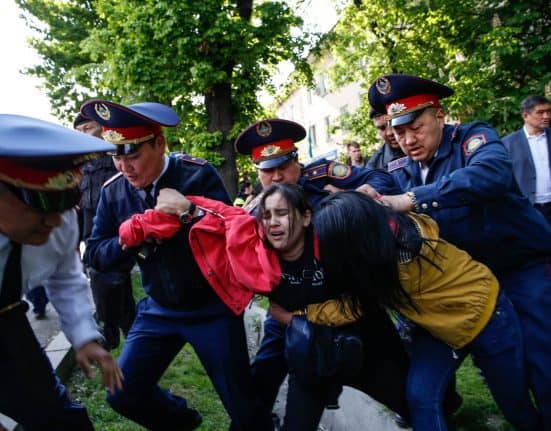For 8 months of 2021, protection orders were issued to 26,105 women. This means that in Uzbekistan, 107 women face various forms of violence every day. Almost 90% experience family harassment. This information became known to the project Nemolchi.uz, the volunteers of which spread the information in social networks. The use of official data from the Ministry of Internal Affairs is emphasized.
It is reported that less than a fifth of the aggressors is involved in correctional programs. Of these, only more than fifty people, in respect of whom a restraining order has been issued, are prosecuted.
The text poses direct questions to Uzbek officials: “Why is domestic violence still not criminalized in Uzbekistan? Why is a restraining order replacing punishment? ”
The project participants are sure – “criminals should answer proportionately, and not avoid responsibility!”. The issuance of protection orders to victims of aggression has been practiced since the beginning of 2020, following the adoption of the Law on the Protection of Women from Oppression and Violence. Orders are issued by the preventive maintenance inspectors of the Ministry of Internal Affairs for 30 days with a possible extension of the term. For violation of the requirements of the protection order, a fine of up to $ 75 (as of September 1 of this year) or arrest for 15 days is provided.
Earlier, the ACCA posted about the practice when rapists, whose victims are mostly girls and teenagers, are judged under a softer article, or even completely exempted from criminal liability.
The editor-in-chief of the Nemolchi.uz project, Irina Matvienko, proposes to transfer all cases of crimes against sexual freedom to the prosecutor’s office, and not the Ministry of Internal Affairs. She believes that it is required to create a special department to investigate such crimes and to amend some legislative acts.
If earlier the journalist actively participated in various official events, now she is less and less invited to parliament due to her principled position in upholding the rights of women and children.







Leave feedback about this